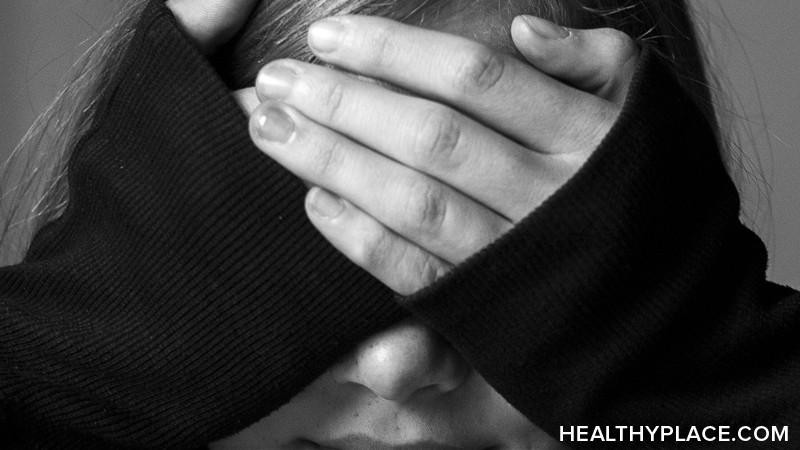Why We Hide Our Diagnosis of Bipolar Disorder

As a mental health blogger, I'm open about my diagnosis of bipolar 2 disorder. However, this wasn't always the case. It took me years to come forward to those around me. In this blog post, I share my personal experience with hiding my bipolar diagnosis, why it's so difficult and how bipolar stigma is the main reason we conceal this information.
We Hide Our Diagnosis of Bipolar Because of Stigma
It's no surprise that the severe stigma that surrounds mental health is the main reason why people hide their diagnosis of bipolar disorder. When you reveal other health conditions, for example, diabetes, it's rare that someone will think differently of you or question your character. When you open up about your diagnosis of bipolar disorder, there is a possibility you will face severe consequences such as losing your job, respect, and relationships with those closest to you, including friends and romantic partners.
The stigma is so severe that for many individuals being open about their bipolar diagnosis is downright irresponsible and unrealistic. A close friend of mine, who lives with bipolar disorder, told me that disclosing his mental illness at work would put him at risk of losing his job. This job allows him to support his family of four comfortably. In his mind, hiding his diagnosis of bipolar disorder is necessary.
It is one of my goals to help make it so individuals will no longer have this type of fear, but for now, it's understandable why people feel obligated to hide their bipolar diagnosis. We feel like if we want to live a normal and judgment-free life, it's necessary for us to hide our diagnosis. In present-day society, it seems like we cannot have both.
The Difficulty in Hiding Our Diagnosis of Bipolar Disorder
Hiding your diagnosis of bipolar disorder is difficult for many reasons. It feels like you are wearing a mask in front of others or have this big secret weighing down on you. Bipolar disorder does not define us, but it is a significant part of who we are, which makes it more difficult to hide.
It also forces us to lie to others in a non-malicious way. When I left the mental hospital and came home to face reality, I lied to my friends about what happened. In periods of depression and isolation, when I wouldn't respond to texts or calls, I would blame it on some physical illness such as the flu. According to my friends, I have had the flu more than any other human being on earth.
Still to this day, I struggle to be completely honest about my life with bipolar disorder. Concealing your diagnosis of bipolar is difficult, but sometimes you feel like it's your only option.
My advice to those who are struggling with keeping their bipolar disorder hidden from those around them is to get involved in the mental health community. Look for local mental health events, support groups or volunteer for your local NAMI (National Alliance on Mental Illness). I believe people with bipolar disorder, or any mental health condition, have the right to live an authentic life. I hope, in the future, hiding their diagnosis of bipolar disorder will no longer be necessary.
APA Reference
Blum, H.
(2018, March 27). Why We Hide Our Diagnosis of Bipolar Disorder, HealthyPlace. Retrieved
on 2026, February 28 from https://www.healthyplace.com/living-with-bipolar-blog/why-we-hide-our-diagnosis-of-bipolar-disorder
Author: Hannah Blum
I would like to say after I learned to except who I am and started loving myself, I wanted others to know that I was much more than my diagnosis. I tell my clients in my groups that you would not judge me if I had a broken arm, so I have a mental illness and I'm much more then that, I'm a great mother, a very good friend. and a great co-worker of a well known Behavioral Health Center. My mental illness lets me know that I am special in a good way, I can be helped and stay well as long as I take my med's as prescribed I'm good with that.
I live a very successful life and I am glad I can tell others it's not bad in less you make it bad.